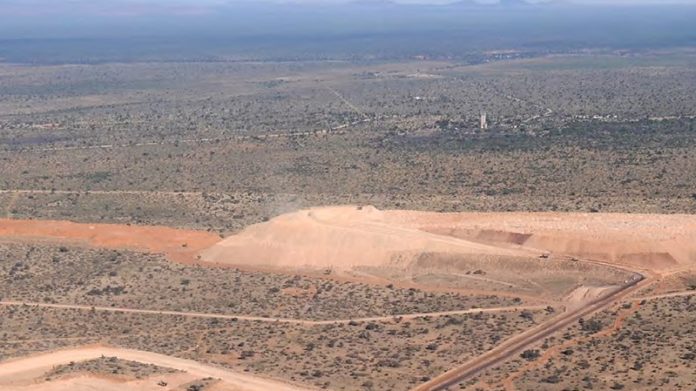
AFRIMAT, the industrial minerals company, is to buy the Gravenhage manganese deposit in South Africa’s Northern Cape province for $45m (R650m), it announced today.
Gravenhage is a deposit owned by Aquila Steel, the company that was embroiled in a licensing dispute that resulted in the Department of Mineral Resources & Energy (DMRE) being dragged to court where its minister of the time – Ngoako Ramatlhodi – was censured for incompetence.
The dispute was eventually heard in a Constitutional Court review that found in favour of Aquila Steel paving the way for the development of the prospect. This came more than eight years after the project was first announced.
Aquila is 85% owned by Chinese steelmaker, Baosteel Group.
Afrimat said in its announcement the acquisition of the project represented another step in its diversification strategy.
It also reinforces growing interest in the Northern Cape as a new centre of mining development.
In addition to Orion Minerals – which has potential investments in the region of about R6bn – a new copper tailings processing company is due to be listed by former CEO of Pan African Resources, Jan Nelson after it bought the Okiep Copper tailings in the province.
Commenting on the rationale for the transaction, Afrimat said the prospect had the technical support of a feasibility study and was located 120 kilometers from the company’s Demaneng iron ore mine. “It is one of the last independently owned, undeveloped manganese deposits in South Africa,” said Afrimat of Gravenhage.
“A definitive feasibility study was finalised confirming the technical and economic feasibility of the Gravenhage manganese project based on an initial open cut operation with the potential for subsequent underground mining,” said Afrimat. “The resource and its significant potential has been well defined by continued exploration drilling,” it said.
Iron ore and manganese are used in the manufacture of steel and are viewed as critical to the world’s decarbonisation efforts. “The successful development of Gravenhage will increase Afrimat’s scale in the ferrous-metal value chain and its exposure to foreign currency-denominated earnings,” Afrimat said.
The deal consideration will be paid in an initial $30m tranche followed by R15m which relates to the purchase of the property payable on the tenth business day following the fulfilment or waiver of conditions precedent.
These conditions include a change of control approval by the DMRE as well as transaction approval from the Chinese authorities and the grant of a water use licence.
A second tranche of $15m will be paid on the critical condition that Afrimat is able to involve a third party in the transaction the consequence of which is that it will hold less than 50% of the Gravenhage mining right or there’s ore delivered from the mine.










